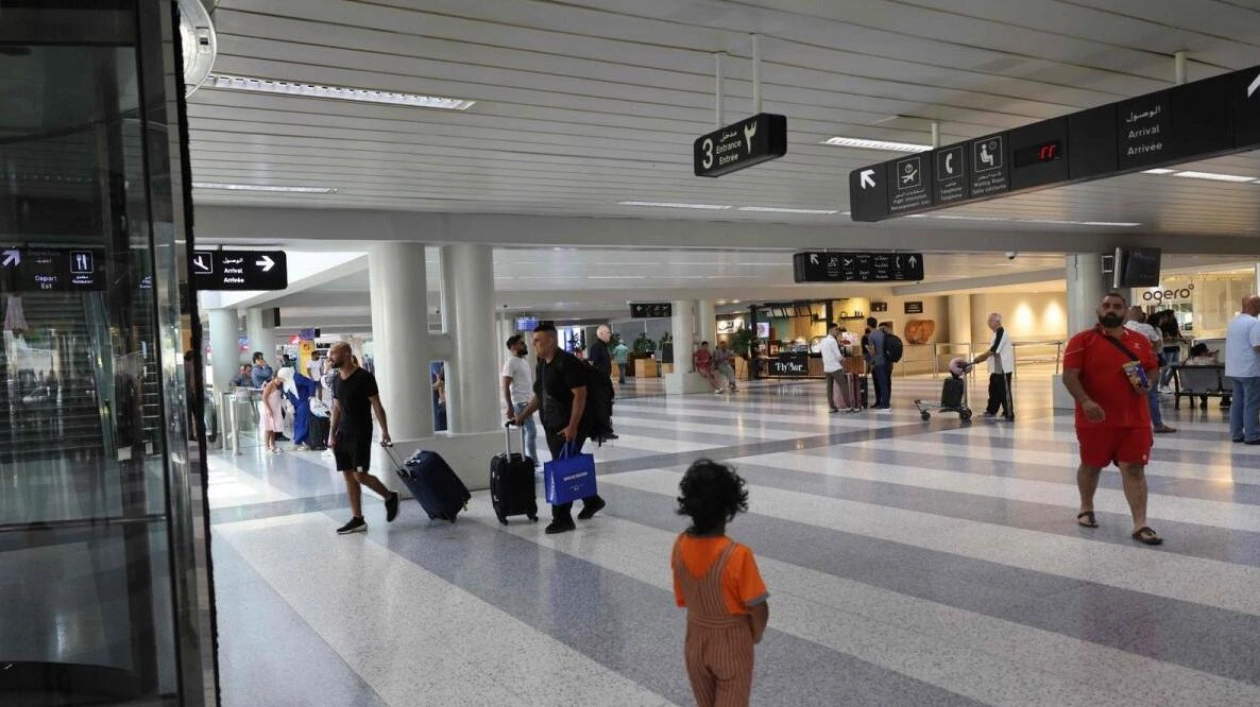On Sunday, numerous passengers at Lebanon's sole international airport were anxiously monitoring the announcement boards as additional flights to the capital were either cancelled or delayed due to the escalating tensions between Israel and Hezbollah. Although Beirut International Airport was operational, many travelers found themselves stranded as major airlines announced flight suspensions following the declaration of broad strikes by both Israel and Hezbollah, which escalated the cross-border hostilities.
"We arrived at 4.30am (0130 GMT) for our 8am flight, but were informed it was cancelled," recounted Elham Shukair, a passenger bound for the United States via Jordan. She was seated on her luggage in the arrivals hall, having booked another flight later that day with Lebanon's Middle East Airlines, hoping to catch a connection in Amman.
Hezbollah has engaged in near-daily exchanges of fire with Israeli forces since Hamas' attack on Israel on October 7. However, Israel initiated air strikes into Lebanon on Sunday, claiming to have thwarted a large-scale Hezbollah attack, while the Lebanese group retaliated with its own cross-border strikes in response to the death of a senior commander, Fuad Shukr, in an Israeli strike last month. The killing of Shukr has heightened fears of a broader conflict between Hezbollah and Israel, who last engaged in a destructive war in the summer of 2006, during which Israel bombed Beirut airport.
On Sunday, other passengers were seen sitting on the floor in the departures hall, with screens displaying cancelled or delayed flights, while the arrivals area remained largely vacant. "Our flight is still on the schedule but delayed," said Diala Hatoum, who was traveling with her son on a Qatar Airways flight. "We will see, we are waiting now," she added.
At Israel's Ben Gurion Airport, passengers also faced uncertainty as aviation authorities delayed or redirected flights. The airport had resumed operations from 7am (0400 GMT) following a brief suspension, but numerous passengers were left stranded due to some flights being cancelled or delayed. "We really need a break from all of this... the situation in Israel," expressed Sofia Levi, 23, a stranded passenger. Shay Shauli, 45, who intended to fly to Athens, had been waiting at the terminal for over three hours. "I am waiting to see if the flight is still on. If not, I need to purchase a new ticket, which is much more expensive," he told AFP.
Air France and its subsidiary Transavia announced the suspension of flights to Beirut and Tel Aviv scheduled for Sunday and Monday, with the possibility of extending the suspension based on the Middle East situation. Royal Jordanian Airlines suspended Beirut flights "due to the current situation." Etihad Airways from the UAE also cancelled its services on Sunday to and from Beirut and Tel Aviv. Lufthansa, the German airline giant, extended its suspension of flights to Beirut until September 30 and to Tel Aviv until September 2. Despite some disruptions, Lebanon's civil aviation authority emphasized that "the airport is functioning normally." There is "no truth" to rumors that all flights have been cancelled, according to a statement from the authority carried by the official National News Agency. Several airlines had previously announced flight suspensions or cancellations to Beirut in recent weeks, with some subsequently resuming services.






